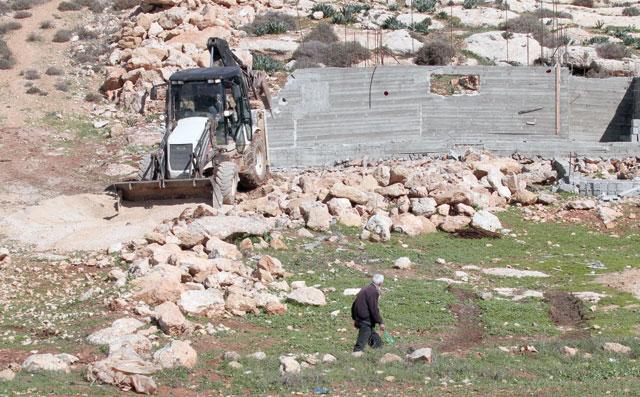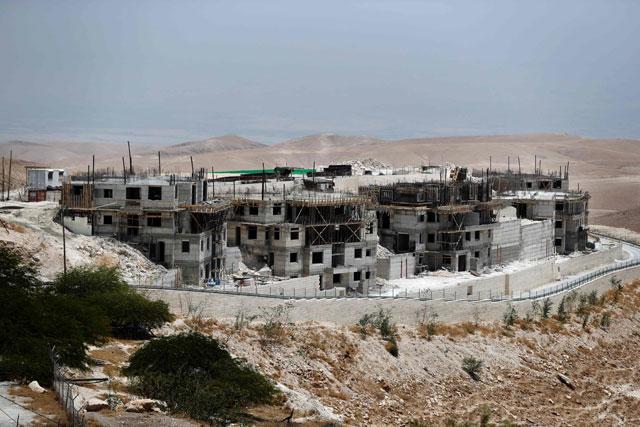You are here
Businesses in Israeli settlements contribute to rights abuses — HRW
By AFP - Jan 19,2016 - Last updated at Jan 19,2016
OCCUPIED JERUSALEM — Companies operating in Israeli settlements in the occupied West Bank contribute to "an inherently unlawful and abusive system" violating Palestinian rights and should halt activity there, Human Rights Watch (HRW) said Tuesday.
The new report from the US-based rights group describes Israeli policies in the West Bank that lead to government support of settlements, the "unlawful confiscation" of Palestinian land and denial of permits to Palestinians.
According to the report, which cites examples of foreign firms linked to settlements, including cement and real estate companies, "Israel's privileged treatment of settlers extends to virtually every aspect of life in the West Bank".
"Settlement businesses unavoidably contribute to Israeli policies that dispossess and harshly discriminate against Palestinians, while profiting from Israel's theft of Palestinian land and other resources," HRW's Arvind Ganesan said in a statement.
"The only way for businesses to comply with their own human rights responsibilities is to stop working with and in Israeli settlements."
Israel's foreign ministry said officials were studying the report, but called it "one-sided".
Israel occupied the West Bank in the 1967 war and more than 500,000 Israeli settlers now live in the territory and in East Jerusalem.
The 1990s Oslo accords divided the West Bank into zones known as Areas A, B and C.
Area C — some 60 per cent of the West Bank — is under full Israeli military and civilian control.
The accords were intended to lead to a permanent resolution within five years, but more than two decades later, peace efforts are at a standstill and a fresh wave of violence erupted in October.
Palestinians 'all but barred'
Some analysts say frustration with Israel's continuing occupation as well as the Palestinians' fractured leadership have been key reasons for the violence.
West Bank settlements are seen as illegal under international law as well as major stumbling blocks in peace efforts since they are built on land Palestinians view as part of their future state.
HRW points to foreign firms operating in Area C of the West Bank to the benefit of settlements while “Israel all but bars Palestinians from building or extracting natural resources” in the zone.
Two examples it points out include Germany’s Heidelberg Cement and US-based Remax real estate.
Heidelberg told HRW that it believed its Nahal Raba quarry “does not infringe the human rights and livelihoods of the Palestinian people” and provided Palestinians with well-paid jobs.
Remax did not respond to HRW or to an e-mail from AFP, but has said previously that its offices are independently owned and operated.
It said it “understands the serious nature of the controversy surrounding real estate operations in the West Bank and has been working to a find a resolution that is acceptable to all parties”.
Related Articles
OCCUPIED WEST BANK — Rights activists on Tuesday urged Booking.com to follow the example of Airbnb and withdraw listings for rentals in Isra
GENEVA — The United Nations human rights office said on Wednesday it had identified 206 companies doing business linked to unlawful Israeli
UNITED NATIONS — UN chief Ban Ki-moon sharply criticised a decision by Israel to advance plans to build hundreds of units in the West Bank a



















